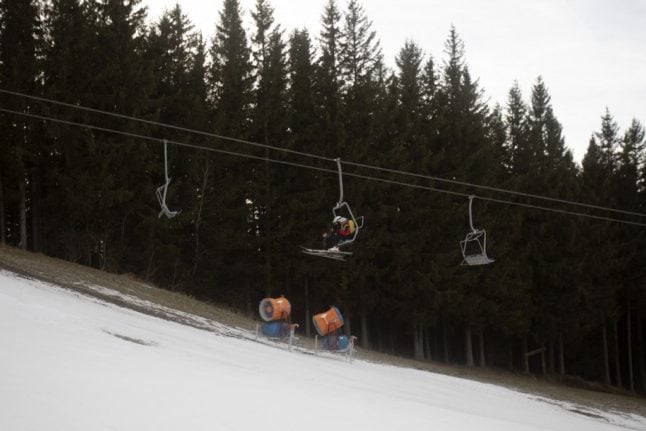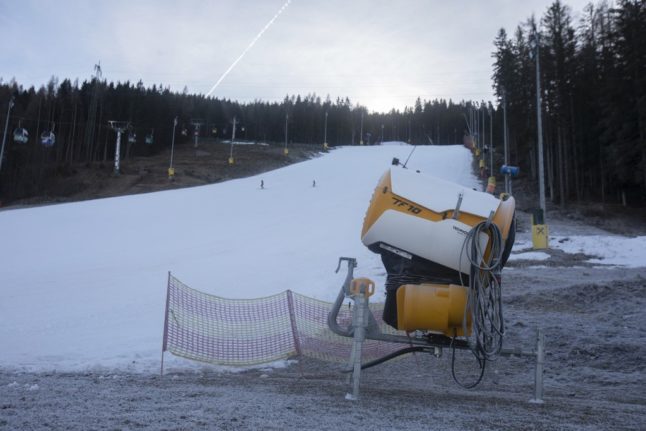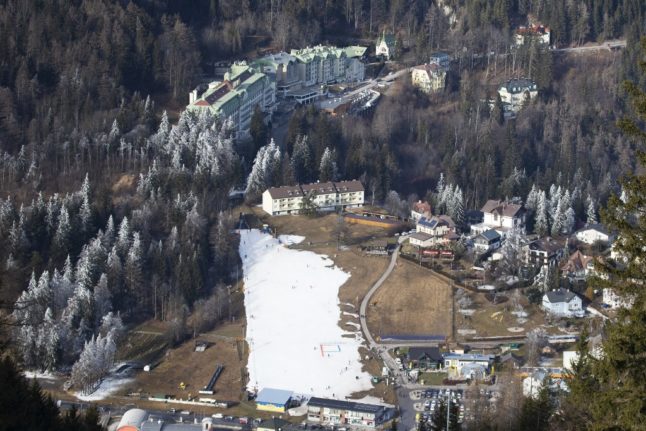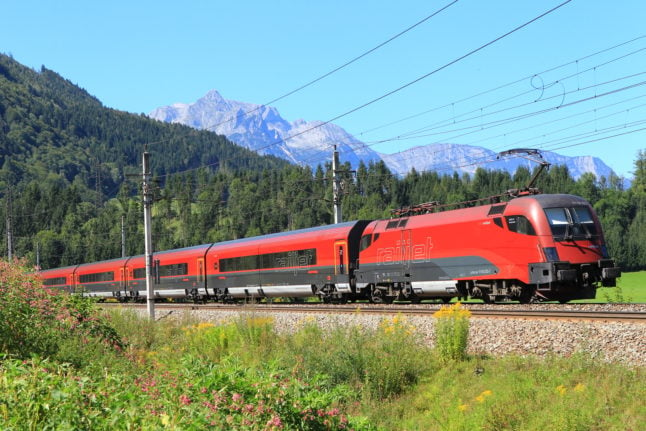Brown hillsides and slivers of snow – a common sight across Europe’s Alps, and a far cry from the winter wonderland tourists had banked on.
While some snow started to fall again early this week, Europe has seen “extreme” warm winter weather in recent days, experts say, with 2023 already posting record January temperatures across the region.
READ ALSO: Warm weather hits Austria’s ski season as slopes left without snow
From Austria to France, Italy and Switzerland, slopes have melted away – with temperatures too high even to make artificial snow. Many lower-lying resorts have had to close, while others are offering reduced services.
“In the last days it’s not been cold or wintery… so winter holidaymakers probably don’t really feel like skiing,” Nazar Nydza, managing director of the Semmering Hirschenkogel Bergbahnen told AFP.
‘Anxiety’
Until Monday, it had not snowed for weeks in Semmering, and temperatures had not dropped below minus three degrees Celsius (27 degrees Fahrenheit) in days, meaning it has not been economically viable to make artificial snow, according to Nydza.
About a third of the slopes were closed in the small resort, which still held a World Cup race at the end of December and lies less than 100 kilometres (60 miles) south of Vienna.
“It’s a shame. It would have been nice to come to Austria in the middle of winter and see it all snowy,” said Gregor Macara, 34, a climate scientist from New Zealand who was visiting a friend.
Further west, in Switzerland’s Leysin, near the border with France, student Alexis Boteron, 19, said that with artificial snow, “it’s not the best conditions for skiing”.
But he said it is “always a pleasure, we’re with our friends, we have fun.”
Many expressed worries about the ever hotter temperatures and lack of snow.
Jean-Marc Gross, a hiker from Lausanne, said he felt “a little bit of anxiety about… what is happening to our climate and the future.”

Fatal accidents
Besides the lack of snow in Austria, an increase in the number of deadly ski accidents has also made headlines.
So far this season 13 people have died in ski accidents, compared to a 10-year average of seven for the same period, the Austrian Alpine Safety Board said in a statement last week.
Though investigations are ongoing, some have said the lack of natural snow is making conditions tougher.
Amid such negative headlines, ski resorts and tourism officials across the Alpine regions are putting on a brave face after two years of coronavirus-related restrictions.
They say the final visitor numbers at the end of the season will matter – so if it snows again, numbers could still be positive.
“The pre-season (before the holidays) was better than expected that means people want to ski, people want to come back and do winter holidays,” said Walter Veit, president of the Austrian Hotelier Association, which represents mostly high-end hotels.

Yoga instead of skiing
Some ski stations have already moved to offer alternative activities, seeking to make up for the lack of snow.
The Swiss resort of Flumserberg, near Zurich, where just around a third of the length of slopes were open late last week, has organised special offers, including dance and yoga courses for those holding ski passes.
READ ALSO: Where are the best places to go skiing in Austria?
Torgon, a small family resort in the Valais Alps between 1,200 and 1,900 metres (3,900 and 6,200 feet) above sea level, has had to close for skiing, and hiking has taken its place on the slopes.
Anna Reiner, visiting from Zurich, said it was “worrying when you always have temperatures getting higher and higher”.
“Of course I’m sad, I like to ski, but what can we do?”
“Today we went hiking, which was fun, but it’s not the same,” she said.



 Please whitelist us to continue reading.
Please whitelist us to continue reading.
Member comments